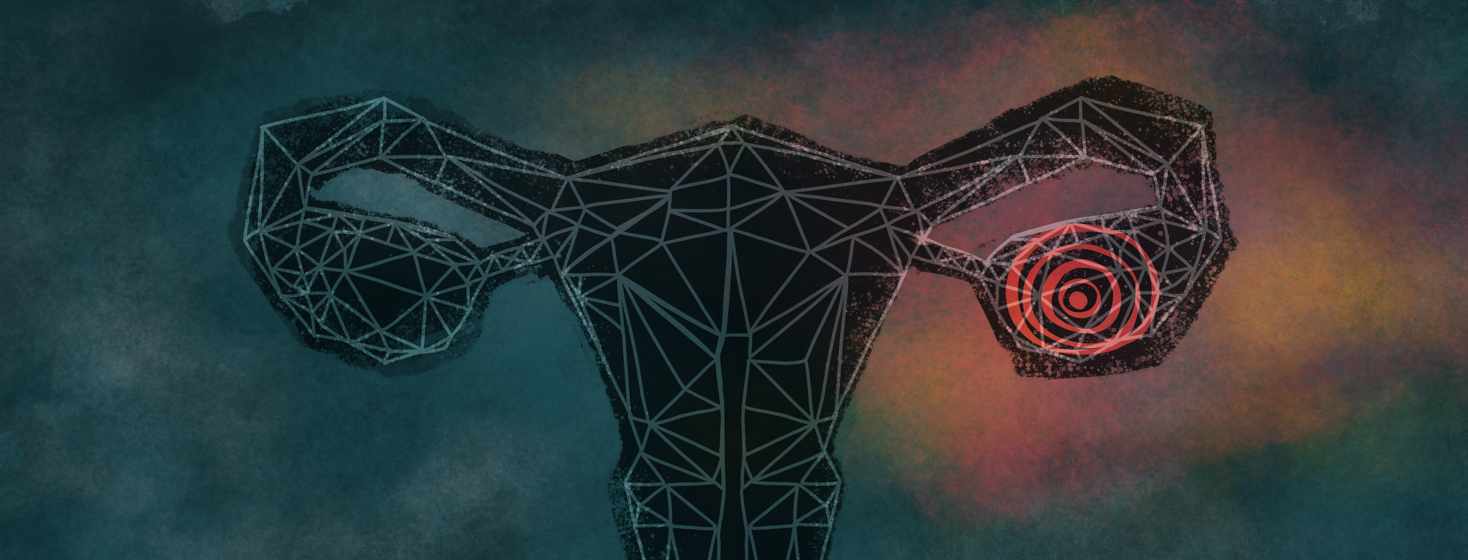What To Do About A Ruptured Cyst
A few weeks ago, I woke up in excruciating pain. It emanated from the right side of my lower abdomen and it was a discomfort that felt oddly familiar. Ever since my latest surgery, I had experienced this sort of pain occasionally - sharp and sometimes very sore, but nothing new. Usually, if I sat down and took it easy for a while, it would dissipate within an hour or two.
This time, though, it felt different. The pain didn’t subside, no matter how much time I spent horizontal. It also was alarmingly painful. Several times, it brought me to my knees. At one point, I had to call a friend to help me get up from the floor. Soon, I began bleeding.
That's when I knew something wasn’t right and called my doctor to schedule an appointment straight away. The first thing my doctor did was rule out appendicitis, because of the location and the similarity of the symptoms I was describing. I had several tests done, and some blood extraction. I was prescribed codeine for the pain and told I would get a phone call for a scan very soon. Three days after seeing my doctor, the pain disappeared, and the bleeding began to subside.
Two weeks after, I finally got the scan. The technician performing it gave me the all-clear, telling me they were no cysts, polyps or anything out of the ordinary. She also said that, because I had bled, it’s likely the pain was due to a small ruptured cyst, which by then, had "quietly" exited my body.
How to recognize a ruptured cyst
In my case, the first telling sign was how it differed to a flare-up. There was no letting up, no moment of respite. The pain was very sharp and strong. As endometriosis patients, we are used to all sorts of discomfort, but this felt particularly severe, and didn't come in waves. It just wouldn't budge. My gut told me this was not normal.
Some other signs of a burst cyst can include bloating, fullness in the abdomen, fever, bleeding or physical weakness.
What can you do about it?
Interestingly, in the event of a ruptured cyst, if it is small enough, many of us won’t even notice it happening. Frequently, they sort themselves out. However, if you develop a fever, vomit, feel weak, experience breathing difficulties and severe pain, and begin to bleed vaginally, that’s when it is important to see a physician as soon as possible.1
Additionally, it is essential to keep tabs with what is going on with your body. As an endometriosis patient, I usually have a scan once a year to keep an eye on any polyps, cysts, or endometriomas that may be populating my uterus and ovaries. It is worth keeping an eye on any changes or any sort of discharge.
In my case, having a cyst suddenly burst and sort itself out caused me no further issues. But if you’re suffering through severe symptoms and are worried they could be due to a ruptured cyst, seeking immediate medical attention is, always, the right choice.
As an endometriosis patient, I know that going to the emergency room can be exhausting and so very scary, but self-love really is about caring about everything that goes on with us. If something doesn't feel right, don't delay seeking help, and never let anyone dismiss your gut feeling.

Join the conversation